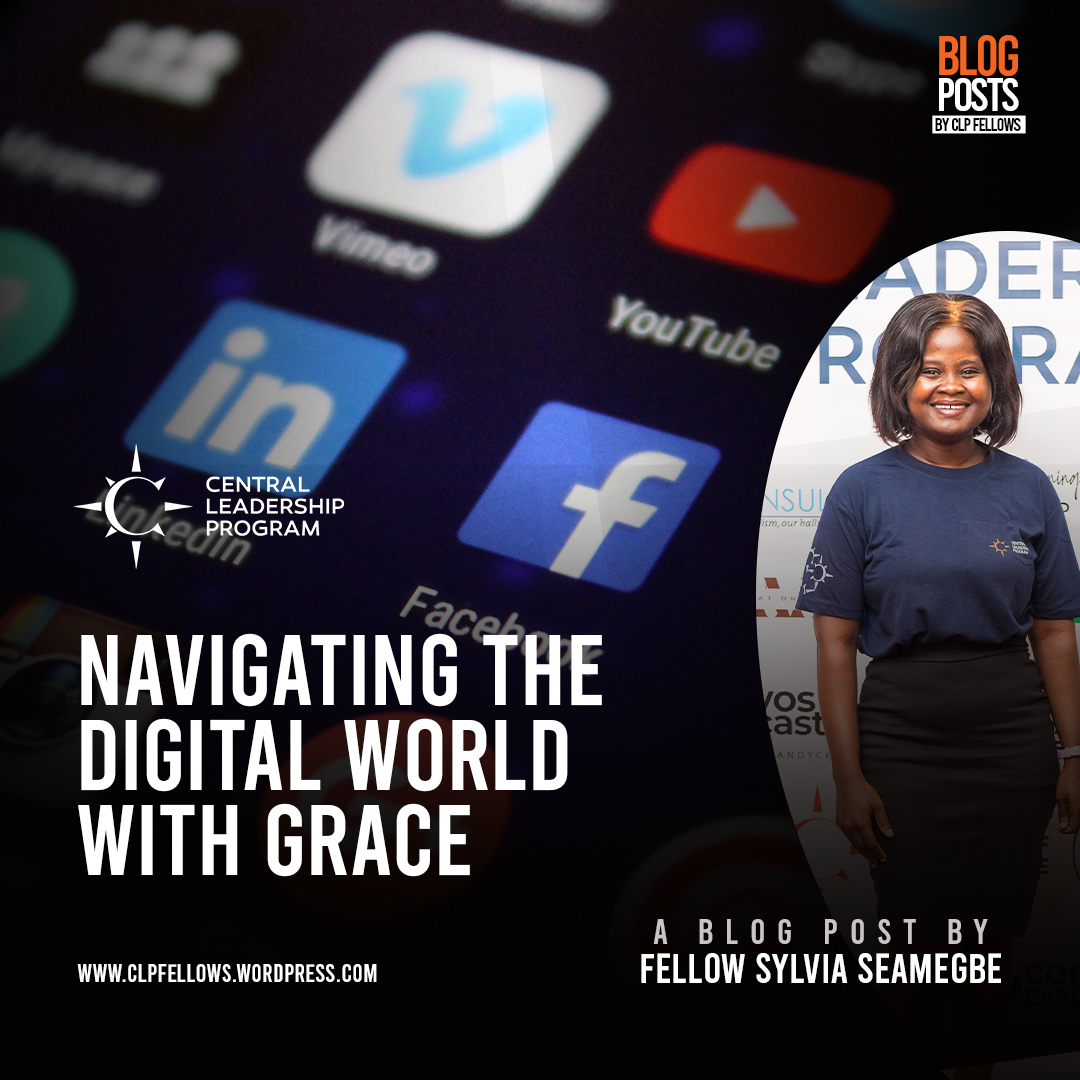Navigating the Digital World with Grace

‘Who sent me?’, ‘Why did I post on my friend’s timeline?’, ‘Was it appropriate to share the cat video?’, ‘Was it necessary to comment on my friend’s post?’
How did it start?
Abena, a well-known social media user, had always been conscious of her online presence. All her posts were meant to create healthy interactions and bring joy and laughter to her followers. However, a seemingly innocent joke about her cat triggered an unpredicted storm of negativity.
Things got even worse when she commented playfully on her friend’s post. Angry comments flooded in, accusing her of insensitivity and cruelty. The once-positive online community turned into a hostile mob. Abena, overwhelmed by what was happening, felt a wave of confusion, hurt, and embarrassment.
She struggled to understand why her harmless joke had sparked such harsh comments and criticism; wondering, ‘Who sent me?’, ‘Why did I post the cat video?’, ‘Why did I post on my friend’s timeline?’, ‘Was it appropriate to post the cat video?’, ‘Was it necessary to comment on my friend’s post?’ The questioning went on and on.
In today’s interconnected world, social media has become an integral part of our daily lives, connecting us with friends, family, and communities worldwide while offering numerous benefits such as networking, promoting businesses, and creating opportunities. Your social media presence is a reflection of who you are and what you stand for. There are times when we act as if our presence on social media doesn’t matter as much as our physical presence. This leads us to believe that we can do whatever we want without considering the consequences, thinking, “No one can see me.” As a result, we leave rude comments on others’ posts without caring about the impact on others. Even when our comments are inappropriate for a particular post, we still feel entitled to comment.
I found myself in a situation similar to Abena’s, and it was both surprising and disheartening. Then it dawned on me that I had never considered that online interactions require a certain level of etiquette and that every social media platform is tailored to suit specific purposes. For those who have yet to experience the repercussions of a wrong comment or post this post will provide valuable insights. Meanwhile, for those who have already navigated these waters, consider this a friendly reminder. Now, let’s explore these important etiquettes.
Be respectful:
- Respect online users as you would in person.
- Be mindful of your tone
Think before you post:
“Before posting, ask yourself if the content is True, Helpful, Inspiring, Necessary, and Kind (THINK). If any of these questions are left unanswered, refrain from posting hastily. You might end up feeling like Abena and I did, asking ourselves, ‘Who sent me?
Respect privacy:
- Always seek permission before sharing photos or information about others.
- Be mindful of who you tag in your posts.
- If someone asks you to stop sharing their information, respect their wishes.
Engage constructively:
- Pay attention to others’ perspectives and engage in respectful conversations.
- Treat others with kindness and respect, even if you disagree with their view; you could always politely decline.
As a responsible Christian social media user, I believe in aligning my online persona with my values and principles. Just as we carefully consider what we wear based on the occasion, personal style, and cultural norms, we should also be mindful of our online presence. When it comes to online behavior, it’s important to consider the type of content we share, the tone we use to express ourselves, and how we engage with others. This includes being mindful of the photos, videos, and text we post, the way we communicate (positive, professional, and humorous) and our interaction with others (responding to comments, and participating in discussions). This helps to ensure that our online presence reflects who we are and what we stand for. Our online presence should mirror our values, personality, and professional objectives.
Dressing physically and presenting ourselves online have key similarities:
- Both physical and online appearances can leave lasting first impressions.
- Our clothing choices and online content reflect our style and values.
- Our physical and online personas should align with each other.
Just as we pay attention to our physical appearance, we should also invest time and effort in cultivating a positive and professional online presence. In professional settings, both our physical and online appearances should be polished and professional. Let’s make a conscious effort to curate our digital footprint, ensuring our posts reflect who we truly are. By dressing how we want to be addressed, we create a positive and authentic online presence.
Join me in this digital transformation!
Let’s use social media for inspiration, encouragement, and positive change. Remember, your posts speak volumes about you. Dress them with care and intention. Share your stories, uplift others, and be a shining light in the digital world. Let’s create a community that fosters kindness, creativity, and meaningful connections. Together, we can make a difference in the online space and beyond.
-Written by fellow Sylvia Emefa Seamegbe
